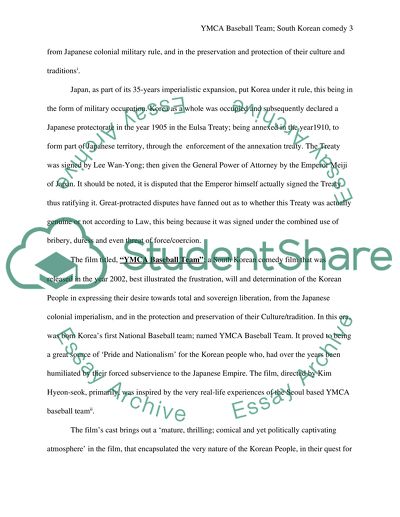Cite this document
(“YMCA Baseball Team Research Paper Example | Topics and Well Written Essays - 2000 words”, n.d.)
Retrieved from https://studentshare.org/visual-arts-film-studies/1438353-under-the-oppresive-rule-of-the-japanes-colonial
Retrieved from https://studentshare.org/visual-arts-film-studies/1438353-under-the-oppresive-rule-of-the-japanes-colonial
(YMCA Baseball Team Research Paper Example | Topics and Well Written Essays - 2000 Words)
https://studentshare.org/visual-arts-film-studies/1438353-under-the-oppresive-rule-of-the-japanes-colonial.
https://studentshare.org/visual-arts-film-studies/1438353-under-the-oppresive-rule-of-the-japanes-colonial.
“YMCA Baseball Team Research Paper Example | Topics and Well Written Essays - 2000 Words”, n.d. https://studentshare.org/visual-arts-film-studies/1438353-under-the-oppresive-rule-of-the-japanes-colonial.


